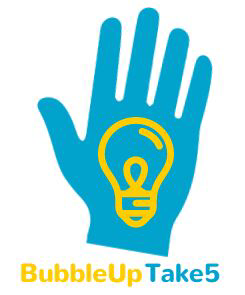1. Every school (really, every organization) has "pockets of innovation." This piece by A.J. Juliani addresses several specific strategies on how to spread innovation beyond those pockets in Poking Holes in Your Pockets of Innovation. 2. We all know about summer learning loss, but I personally am not so keen on the idea of drilling my children (or my students) with workbooks and flashcards all summer. I DO, however, LOVE the idea of summer experiences that engage kids, encourage them to think, play, and be creative on their own time:  Camp Wonderopolis is a "free online summer-learning destination that’s full of fun, interactive STEM and literacy-building topics boosted by Maker experiments!"  Start with a Book offers theme-based learning experiences for kids age 3-12 with literary connections, hands-on activities, writing prompts, sites and apps for further exploration, and, for those local to the Washington, DC area, adventures that tie into each theme.  Maker Camp is "a free, online community for young Makers interested in DIY, making, creating, crafting, hacking, tinkering, and learning."  And, because it's also so important to go OUTSIDE in the summer time, check out Kids in Parks, "an expanding network of family-friendly outdoor adventures called TRACK Trails....featuring self-guided brochures and signs that turn your visit into a fun and exciting outdoors experience." 3. We always think about accessing primary sources in social studies and evaluating them in English classes, but why not science? This is just one example from the Library of Congress: Primary Sources in Science Classrooms: Severe Weather and Community Resilience. Primary sources could be a great way to extend leaning in the science classroom. I'd love to build some primary source sets that support the specific needs of my science teachers. This could even be a fantastic, authentic project for students in History or English: collect and annotate primary sources on a particular topic or issue which could then be used in science classes.
5. While published in 2014, this article by Gayle Allen just crossed my path (thanks to Stephen Anderson). The message resonates with me especially as I mull over strategies for convincing more teacher and librarian colleagues to connect and build their own PLNs: It’s never to late to become a connected Educator. (On a similar vein, I also love this recent humorous but on point piece from Dean Shareski: How to Become a Brand. Or Not.) What has made you think this week? Share what you have been reading, learning, or talking about recently! Enjoy the sunshine, Gretchen You might also like:
0 Comments
Your comment will be posted after it is approved.
Leave a Reply. |
Who We Are
Join our list!Archives
September 2020
Categories
All
|








 RSS Feed
RSS Feed